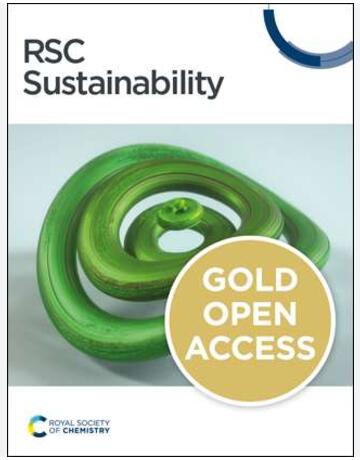数字化转型如何调节可持续酒店的绿色文化、工作满意度和竞争优势?
IF 3.3
3区 环境科学与生态学
Q2 ENVIRONMENTAL SCIENCES
引用次数: 0
摘要
组织内的目标群体会采纳其文化,并将其反映在所有内部和外部业务流程中。通过培养员工的可持续发展意识,在获得可持续发展认证的酒店中采用绿色组织文化在重塑业务流程方面发挥着重要作用。数字化转型促进了企业文化和业务流程的发展,在提高员工工作满意度的同时,也支持了环境、社会和经济的可持续发展。本研究旨在确定绿色组织文化、工作满意度和竞争优势变量之间的关系,并考察数字化转型对这些关系的调节作用。数据收集技术选择了调查和半结构化访谈。在分析调查数据时,使用了 Amos 软件(第 24 版)来检验假设模型,并使用 Hayes Process macro 来确定调节效应。访谈表的数据采用词袋模型进行分析。研究结果表明,绿色组织文化的参与性、一致性和适应性子维度与工作满意度之间存在正相关关系,而使命感子维度与工作满意度之间没有显著关系。此外,研究还揭示了数字化转型对工作满意度影响竞争优势的调节作用。本文章由计算机程序翻译,如有差异,请以英文原文为准。
How Does Digital Transformation Moderate Green Culture, Job Satisfaction, and Competitive Advantage in Sustainable Hotels?
Target groups within an organization adopt its culture, reflecting it in all internal and external business processes. Adopting a green organizational culture in hotels with sustainability certificates plays an important role in reshaping business processes by developing sustainability awareness among employees. Digital transformation, which facilitates corporate culture and business processes, plays a role in employee job satisfaction while also supporting environmental, social, and economic sustainability. This research aims to determine the relationship between green organizational culture, job satisfaction, and competitive advantage variables and to examine the moderating role of digital transformation on these relationships. The data-collecting techniques of choice were surveys and semi-structured interviews. While Amos software (Version 24) was used to test the hypothetical model in the analysis of survey data, a Hayes Process macro was used to determine the moderating effect. The interview forms’ data was analyzed using a bag-of-words model. According to the research results, there is a positive relationship between the participation, consistency, and adaptability sub-dimensions of green organizational culture and job satisfaction, while there is no significant relationship between the mission sub-dimension and job satisfaction. Furthermore, the study reveals the moderating role of digital transformation in the effect of job satisfaction on competitive advantage.
求助全文
通过发布文献求助,成功后即可免费获取论文全文。
去求助
来源期刊

Sustainability
ENVIRONMENTAL SCIENCES-ENVIRONMENTAL SCIENCES
CiteScore
6.80
自引率
20.50%
发文量
14120
审稿时长
17.72 days
期刊介绍:
Sustainability (ISSN 2071-1050) is an international and cross-disciplinary scholarly, open access journal of environmental, cultural, economic and social sustainability of human beings, which provides an advanced forum for studies related to sustainability and sustainable development. It publishes reviews, regular research papers, communications and short notes, and there is no restriction on the length of the papers. Our aim is to encourage scientists to publish their experimental and theoretical research relating to natural sciences, social sciences and humanities in as much detail as possible in order to promote scientific predictions and impact assessments of global change and development. Full experimental and methodical details must be provided so that the results can be reproduced.
 求助内容:
求助内容: 应助结果提醒方式:
应助结果提醒方式:


